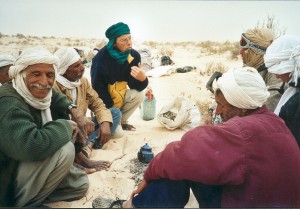There’s so much talk about resilience these days, but little of it explores spiritual sources. My focus is resilience in everyday life: how we can stay steady, and grow through daily stress and bigger crises.
There’s plenty of research to show that people who feel a higher sense of purpose, who have a spiritual path, who pray or meditate, on average feel more wellbeing, and handle challenges more easily. But you can’t plug these features into your life like a phone app, so how can you evolve them and find a way that suits you?
 I’ve been exploring these questions, for myself and in leading retreat groups, for twenty years. This blog offers a few highlights of what has helped me and some others to deepen our spiritual roots.
I’ve been exploring these questions, for myself and in leading retreat groups, for twenty years. This blog offers a few highlights of what has helped me and some others to deepen our spiritual roots.
One place to start is great teachers like Jesus, Muhammad and the Sufi poet Rumi. The best way I’ve found to access this wisdom is the work of Neil Douglas Klotz, who not only re-translates from the original language, but teaches spiritual practices used at the time, such as song, sound mantras, sacred movement, and walking meditation, which help to experience and embody them.
All of this has given me a very different, living sense of what Jesus and others can teach us about resilience. Here’s an example: the third Beatitude. In King James this reads, Blessed are the meek: for they shall inherit the earth. Neil’s translation is: Healthy are those who have softened what is rigid within; they shall receive physical vigour and strength from the universe.
More broadly, the original spiritual teachings of the Middle East can teach us a lot about resilience, probably more than the organised religions that grew from them. Most of them see divinity as the unity of spirit in life, not a patriarch, and heaven as a universal quality of inspiration, not a separate place ‘up there’.
 A related source of my roots of resilience is what I’ve learned from semi-nomadic Bedouin in the Sahara. Since 2001, I have led twelve retreat groups in the Tunisian Sahara, travelling on foot and on camel with Bedouin guides.
A related source of my roots of resilience is what I’ve learned from semi-nomadic Bedouin in the Sahara. Since 2001, I have led twelve retreat groups in the Tunisian Sahara, travelling on foot and on camel with Bedouin guides.
If you want a role model of how to be happy with no control over your environment, and few material possessions, the Bedouin are an inspiring one. As they often told me, “You may be rich in possessions, but we are rich in our community”.
A community that’s part of your spiritual roots is harder to find in Britain than the Sahara, but I’ve discovered ways to create this, even in a weekend group. Sharing songs, food, stories, and your doubts on the journey, can all help this process.
Another crucial part of my spiritual roots of resilience is deep connection to nature and the landscapes around me. This is part of the Bedouins’ resilience too. And the teachings of Jesus and others from those lands are full of natural imagery and connection, in the original language.
All of this needs to be experienced and felt, not read about. So if you’d like to explore further, join me on a Spiritual Roots of Resilience weekend. In 2015, these are March 7-8 near Oxford and September 18-20 near Dumfries, Scotland. Both are beautiful rural venues, and each weekend aims for the quality of a desert caravan: a shared journey through the unknown, with spiritual practices to support us.
See more on our events page.
